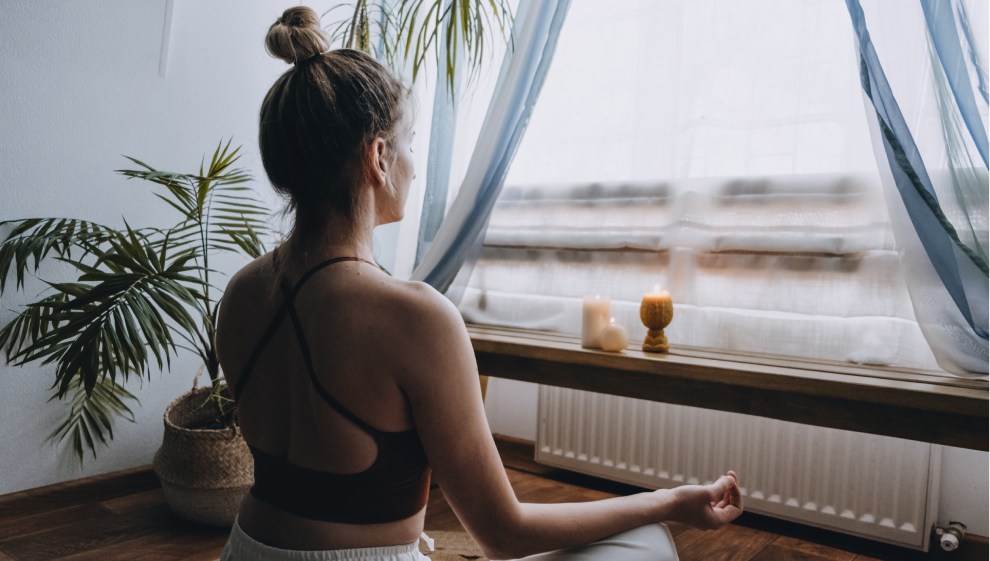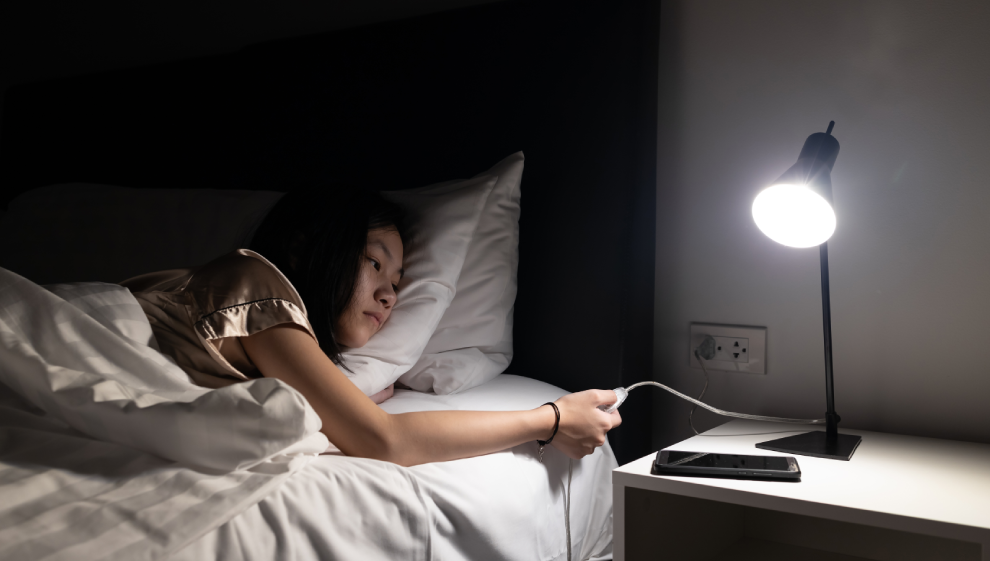Good sleep hygiene | Expert tips for better sleep
- Overview
A good night’s sleep – or a bad night’s sleep – can have a significant impact on how we are feeling for several reasons. Our quality of sleep can affect, and be affected by, our mental health, nutrition, fitness and general wellbeing.
- Read more: The Importance of sleep
If you’re struggling with getting to sleep, here are some easy lifestyle changes you can make to encourage a healthy bedtime (and hopefully sleep!) routine.
1. Follow a schedule all week
‘Sleeping in’ on weekends makes it harder to wake up early on Monday morning because it re-sets your sleep cycles for a later awakening.
Instead, try going to bed at a set time each night and setting your alarm for the same time each morning. This has the added bonus of giving you extra time to be productive at the weekend.
2. Exercise daily
Daily exercise has a wealth of benefits for both body and mind, from stress and anxiety release to using up the energy stored by the food you’ve consumed throughout the day, which can contribute to keeping you awake at night.
Remembering the timings of when you workout is equally important because exercise can also cause a spike in adrenaline, which keeps your body in an alert state. For maximum benefit, try to exercise about five to six hours before sleeping, but no later than two hours before bed.
3. Avoid caffeine, nicotine, and alcohol
There is that age-old myth of a ‘nightcap’ helping you to sleep, but it is in fact, like nicotine and caffeine, a stimulant which increases your blood pressure and heart rate, keeping you awake.
Avoid drinking caffeine past lunchtime as it has a half-life of around four to six hours. This means a quarter of that final caffeinated drink will be in your system up to 12 hours later, which can impact your sleep. Cutting out caffeine could eventually remove the desire for that mid-afternoon cappuccino pick-me-up.
4. Take a warm bath or meditate before bed

Taking a warm bath, reading, or meditation before you go to bed can make it easier to fall asleep.
Lavender is a naturally soothing scent which can be used to help lull you to sleep too.
It's possible to train yourself to associate certain restful activities and aromas with sleep, which helps to make them part of your bedtime routine.
5. Control your room temperature
Extreme temperatures can disrupt sleep or prevent you from falling asleep in the first place, so try to maintain a comfortable temperature in the bedroom either by opening a window, using air conditioning or adapting the thermostat/heaters in your room.
For adults, it is recommended to keep the temperate between 15.5 and 19.4 degrees Celsius for the best sleeping conditions.
6. A natural wake-up call
Sunlight helps the body's internal biological clock to reset itself each day so, if possible, wake up with the sun, or use very bright lights in the morning.
There are even alarm clocks that mimic the effect of the sun rising to wake you up gently every day.
7. Turn off all other lights

Light from under the door or electronic devices can be very disruptive to your sleep, particularly if the light is flashing. This is because your body is naturally programmed to wake up with light.
So, if you have a light on your phone, or any other device such as a TV or tablet, turn it off to give your body the best chance of uninterrupted sleep.
8. Put down your phone
And your laptop, tablet, preferably the majority of electronic handheld devices. These devices emit blue light, which can be disruptive to sleep by mimicking daylight and stopping the production of the sleep hormone melatonin.
This is the hormone that helps prepare us for sleep. So, put your electronic devices down at least an hour before bed and pick up a book instead.
9. Talk to an expert
In this video, sleep expert Justin shares his tips and tricks for a good night's kip. You’ll learn the ins and outs of sleep, how to nod off and the importance of getting enough deep sleep.
If you're struggling with sleep, with continuous nights of disruption that are causing significant impacts on your waking day, we recommend speaking to one of our experts.
Some common signs of poor sleep, apart from lying awake or waking regularly, might include the following:
- Finding it difficult to perform your normal daily activities
- Having to nap regularly
- Falling asleep/feeling sleepy during everyday routines such as driving, watching television or reading regularly.
If you have been experiencing this for multiple weeks in a row, get in touch with your local GP to talk about your sleep. For more sleep advice click here.
Useful sleep resources
If you haven’t found what you’re looking for here, take a look at one of the other sleep related articles below:
- Everything you need to know about sleep from the experts
- The causes, symptoms and treatments for snoring
- Practical advice for children who struggle with sleep
- How exercise can help you sleep
- Learn more about sleep paralysis
Last updated Monday 11 December 2023
First published on Monday 8 August 2016

